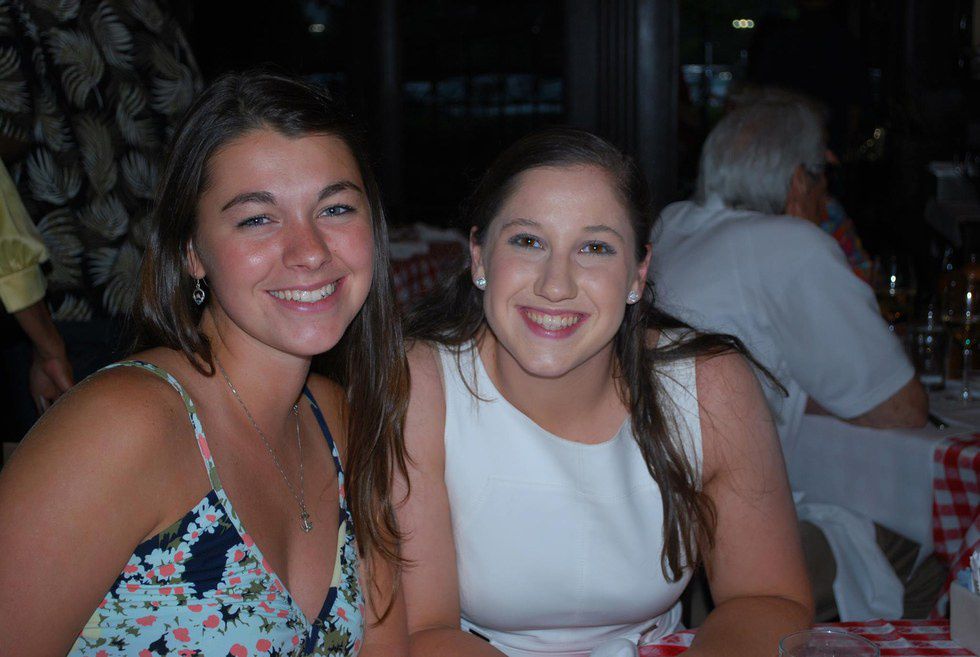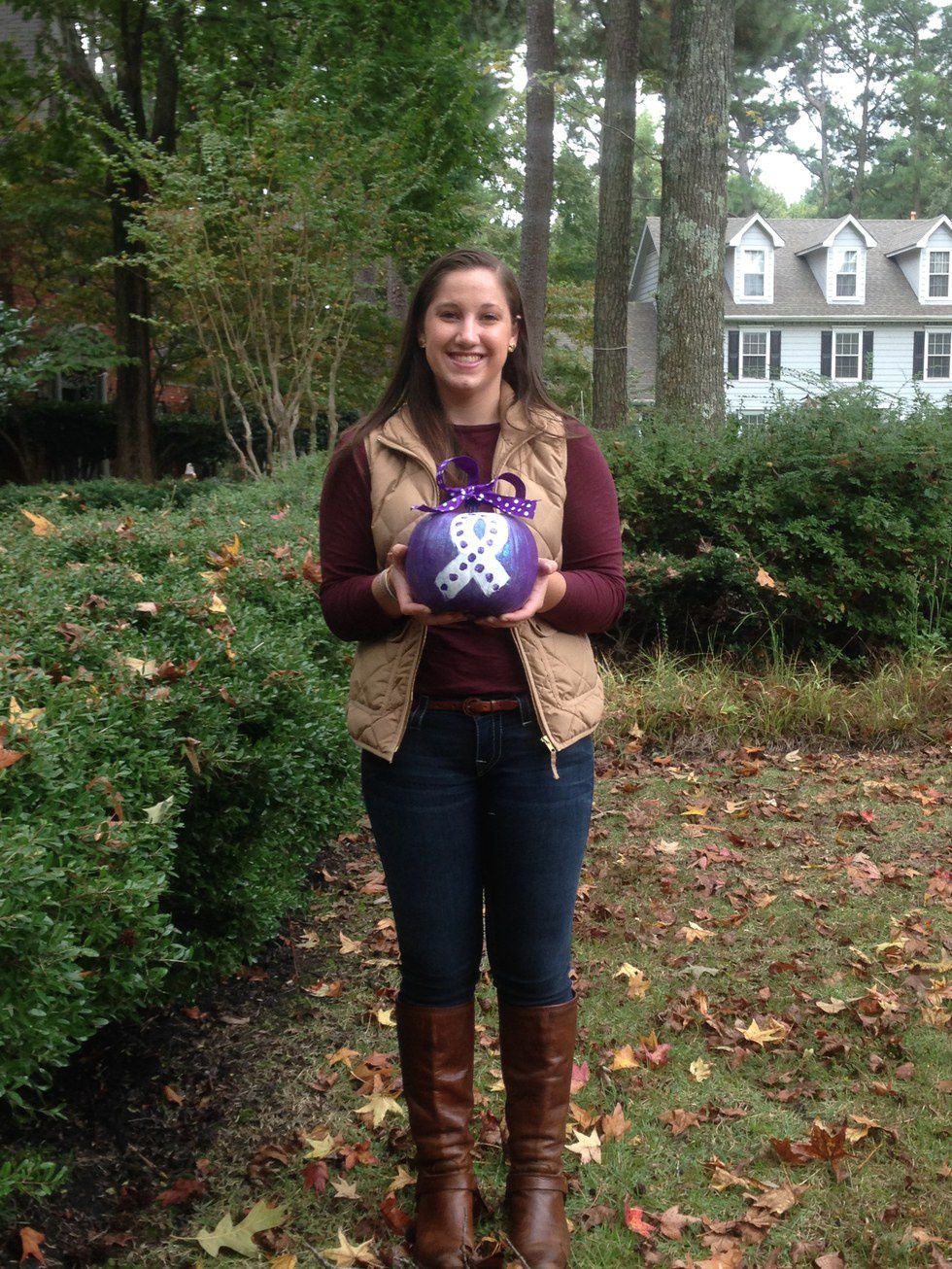Six weeks into my freshman year of college I had my first seizure. The mixture of my late night cram session and early morning practice was not a good combination. I remember waking up and brushing my teeth, but that’s it. I awoke to EMTs, Public Safety and my RA all standing over me.
They took me to a hospital near my school, where doctors diagnosed me as an exhausted college student. A few weeks later I came home for Thanksgiving break, and it happened again. This time, my mom was there, and she saw me seize. Once again I woke up to a panicked room filled with EMT's. They rushed me to the hospital and admitted me overnight, where doctors ran every test in the book. The next afternoon a neurologist walked into my room and told me I had epilepsy. I could see the terror spread across my family's faces and tension filled the room, but I only had one question: "would I be able to play softball?" He told me yes, prescribed me some medicine, and we all went on our merry way. I thought taking the medicine would be the end of seizures. The idea that this would become a lifelong battle never crossed my mind.
After the break, I went back to school and remained seizure free for a short period. However, it wasn’t long enough to stay comfortable. My seizures came in spurts; one summer I had six, and during finals I had two within five hours. Each seizure brought with it new injuries. One morning I was home alone, and I fell out of my bed and hit my head on my nightstand; I awoke covered in blood. During the first year and a half, I sustained several concussions and chipped teeth. I even had one while running on the treadmill and broke a few fingers. Doctors told me to avoid stressful situations and lack of sleep; obviously, they hadn’t been to college recently. Family members questioned if I should still play softball or suggested I take time off, but I wanted to stay. I worked so hard to play Division I softball, and I was attending a great academic school. I had pushed through ACL reconstruction in the middle of my recruiting process and taken hundreds of SAT practice tests; I couldn't fathom the idea of leaving school or quitting the sport I love. Still, I spent every day wondering when the next seizure would strike.
As student-athletes, we pride ourselves on being both physically and mentally tough. There is a stigma about emotion, and how showing it makes us weak. Because of this I never really coped with my diagnosis. In fact, I ignored it completely. I persevered through every seizure; still practicing on days I had them. Nevertheless, many coaches, teammates, and friends acted differently around me. My first college coach told me I was no longer worth the investment of his time. I had friends stop inviting me places because I wasn't allowed to drink. It was these sorts of reactions that made me feel like I couldn't be honest. I hid multiple seizures from my teammates and coaching staff out of fear of repercussions.
I believe that ignorance is partially to blame for this situation. Even though 1 in 26 Americans (approximately three million people) have epilepsy, it just isn't talked about very often. People are uneducated about this condition. I was heartbroken when roommates bailed, and teammates became distant. However, there will always be friends who stand by you! These people are kind and caring, and my advice to anyone (healthy or not) would be to hold onto them tight because they are true friends. Friends who stand by you through adversity are a real blessing.
After over 40 grand mal seizures in 16 months, I was fortunate enough to start working with an excellent neurologist who was able to get my seizures under control. It took countless EEG's and brain MRI's, but as of now I consider myself incredibly lucky. I haven't had a grand mal seizure in over a year (my last one was April 23rd, 2015 to be exact). There are times where I wish I never had epilepsy. I still have occasional petite mal seizures, so I am not allowed to drive. It may seem trivial, but I miss the independence. Additionally, the various medicines that keep me healthy can be overwhelming; they have side effects ranging from depression to nausea and fogginess. My epilepsy will affect the decisions I make in the future about where to live and when to start a family. At times, I feel like I'm hanging on by a thread. For the longest time, I thought I had to conceal my emotions, to keep my fears hidden away. However, I finally understand that it's human nature to struggle. It is not something you have to hide.
In the end, I truly am grateful for what my disease has taught me. I learned how to push through the darkest of times. I play college softball, make the dean's list, participate in clubs, and have had killer internship experiences all while battling epilepsy. Because lack of sleep is a huge trigger for my seizures, I have to make responsible choices. I cannot wait until the last minute to write a paper or go out all night partying. When I entered college, I was a naïve freshman who didn’t know how to balance her time; epilepsy taught me how to do that. Most importantly, I learned how to stand up for myself, and that no one ever has the right to question my value. Occasionally, I do wonder if I could have developed more as an athlete if I never had epilepsy, and that is probably the case. However, my softball career will end next year, and the lessons I have learned will last a lifetime.
To learn more about epilepsy please click here:























